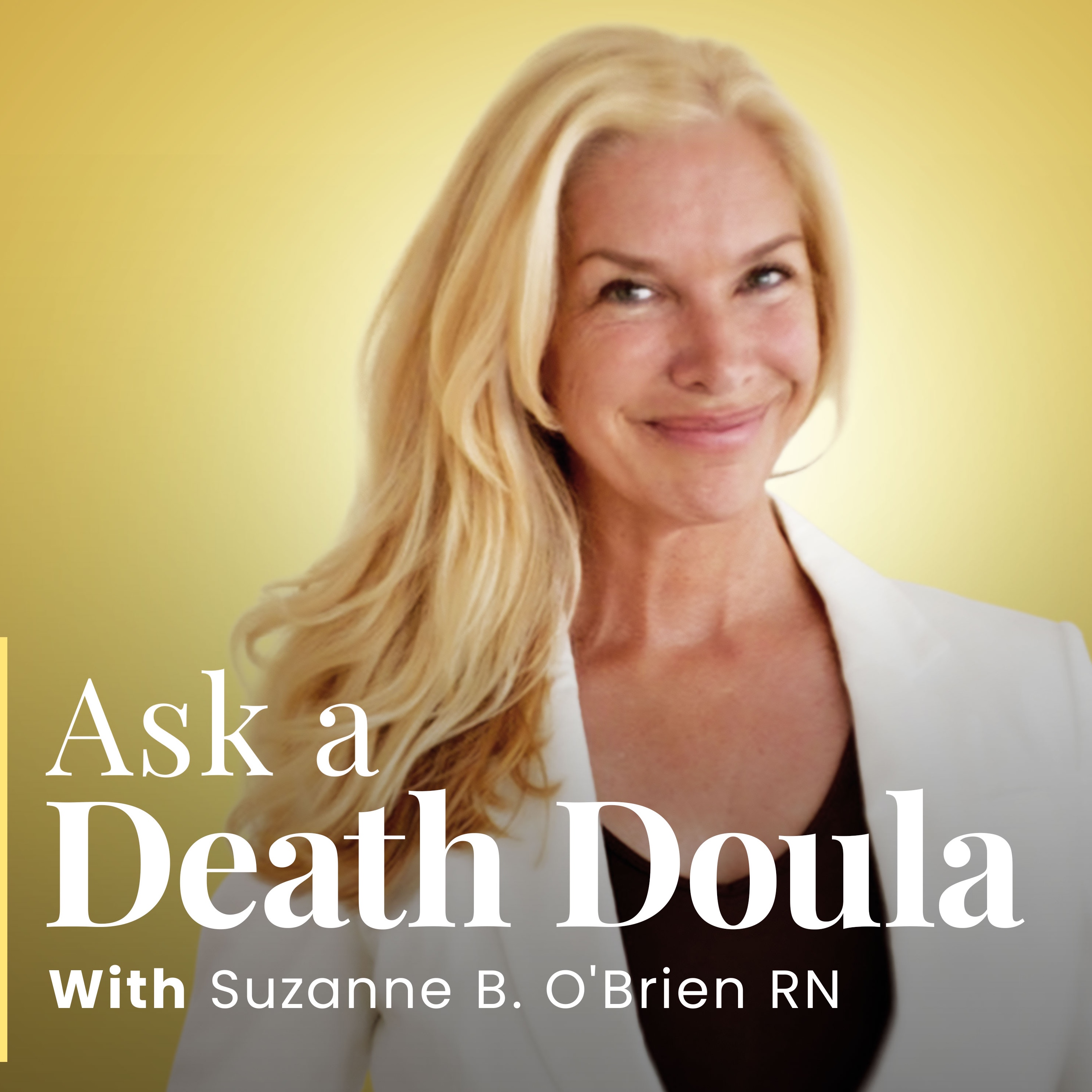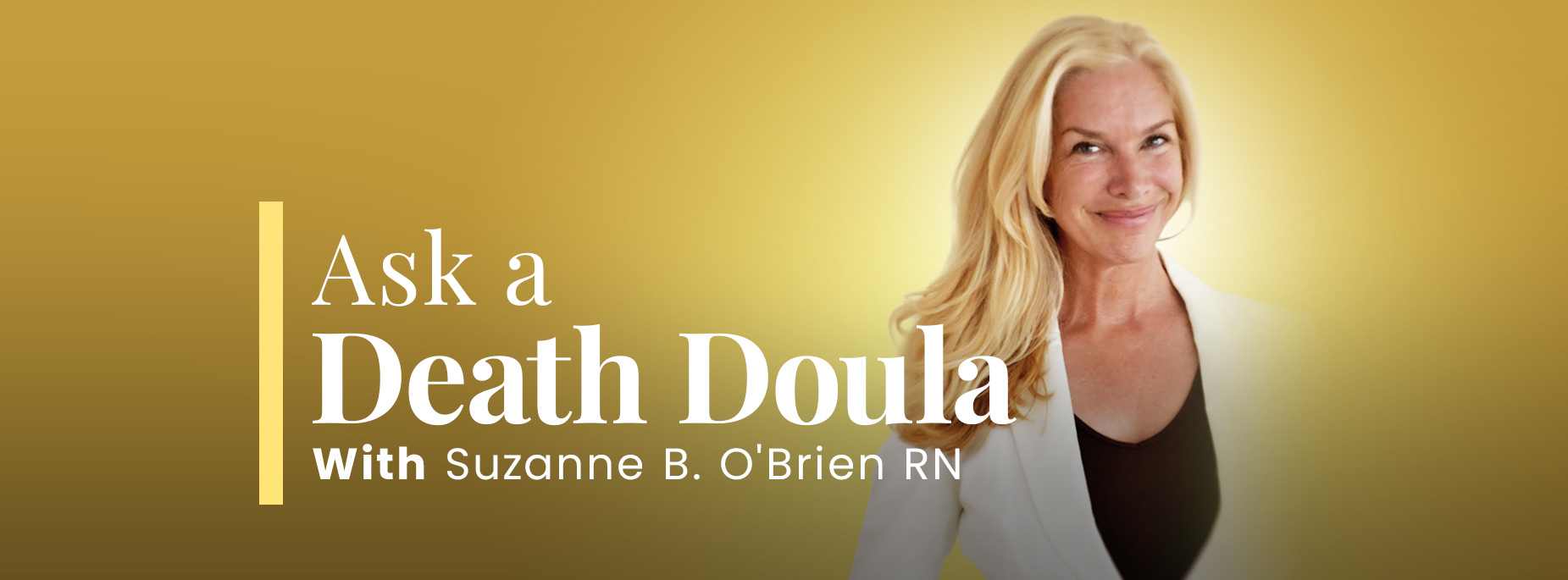
253.5K
Downloads
150
Episodes
Ask a Death Doula Podcast is a weekly show hosted by Hospice and Oncology nurse Suzanne B. O’Brien. Suzanne is the CEO and founder of International Doulagivers Institute. This is a vital platform for discussions and interviews that will bring back death into the natural fold of life. Ask a Death Doula will share vital education on how to care for those who are dying as well as sharing inspiring stories from working at the bedside with over 1000 dying people from all around the world. Please visit www.doulagivers.com to access our free education and resource center. About International Doulagivers Institute: The goal of Doulagivers Institute is simple and powerful - to provide affordable and accessible education and support to everyone in the world so that every person has the opportunity to die with comfort and dignity in their own home. Death is something that we all have in common no matter our race, religion, or socioeconomic status. We believe that this education to support people to have the most positive end of life experience is a human right, not a privilege.
Episodes

Thursday Oct 25, 2018
What To Say To Someone Who Has Just Received A Terminal Diagnosis
Thursday Oct 25, 2018
Thursday Oct 25, 2018
In this first part of the Ask a Death Doula series, we will be discussing what to say to someone who has just received a terminal diagnosis. As you can imagine, this can be an extremely emotional and tense period for the patient, as well as their immediate family and friends. When citing the Doulagivers Level 1 End of Life Doula and Family Caregiver Training, this time in a patient’s end of life journey is referred to as the Shock Phase. It is called the Shock Phase because there is often an overwhelming feeling of shock for both the patient and their loved ones. This “shock” can present itself in many ways such as depression, denial, anger and withdrawal.
It is very helpful to remember that this person and family have just lost all “control” over their life. Telling someone that they are terminally ill and that there is no reversing the process requires those around the family to have a strong and supportive presence. There are so many difficult emotions we may want to express but finding the adequate words can be a challenge. We may fear saying the wrong things and the last thing we want to do is make this situation harder for all involved. Sometimes it may take awhile to be able to say anything at all, and that’s okay. Just know that being a kind and supportive presence during this time can make all the difference to a patient and their family and it isn’t necessary to say much, but here are tips to help you navigate this part of the process.
What to do:
– Be an incredibly good listener.
– Ask the family “What can I do for you?” (Little things such as cooking food, cleaning, caring for a pet, sending cards or making tea when others are around can be very helpful).
– Ask the patient “How are you feeling today?” (Starting by asking this question may give you an idea of what they want to talk about and how open they want to be with you).
– Allow them to give direction. (This gives them back some sense of control in a time when they need it most).
– Look for any immediate issues that need to be addressed. E.g. safety, pain, exhaustion of patients and caregivers. (Although your attention will mostly be on the patient, it is important to never forget about the caregivers. Sometimes the best thing you can do is offer support to the caregivers so that they have the strength and energy to care for the patient).
What not to do:
– Say “I’m sorry” or be overly sympathetic to their situation. (Understand that not everyone will respond well to feeling as though others pity them. It is okay to express sorrow for their circumstances but avoid “feeling sorry for them”).
– Give direction or opinionated advice on things that aren’t direct issues to patient or caregiver safety. (Never, ever offer suggestions or ideas for treatment or cures. Do not try to “fix” the situation. They will ask you for your advice if they would like it).
– Take over. (This is about what they want, not what you want. Respect their wishes always).
Why is this important? It is vital to establish trust and security with a patient and their family at this time when their world has been turned upside-down. The best way to achieve this is through being a strong, solid support. Meet the patient and family “Where they are” in their process and work from there. Building trust sets the tone for your entire journey with them.
xoxoxo Suzanne
FREE DOULA TRAINING
If you're a family caregiver, community volunteer, or are interested in becoming a certified end of Life Doula Practitioner, CLICK HERE to join Suzanne for her FREE Introductory End-of-Life Doula Training!
http://freetraining.doulagivers.com/
OR
Learn how to give the gift of Peace of Mind at the End of Life to yourself and your family members by signing up for Suzanne's Peace of Mind Planner course! CLICK HERE to learn about the five keys to achieving
Peace of Mind at the End of Life.
https://planner.doulagivers.com/about

No comments yet. Be the first to say something!